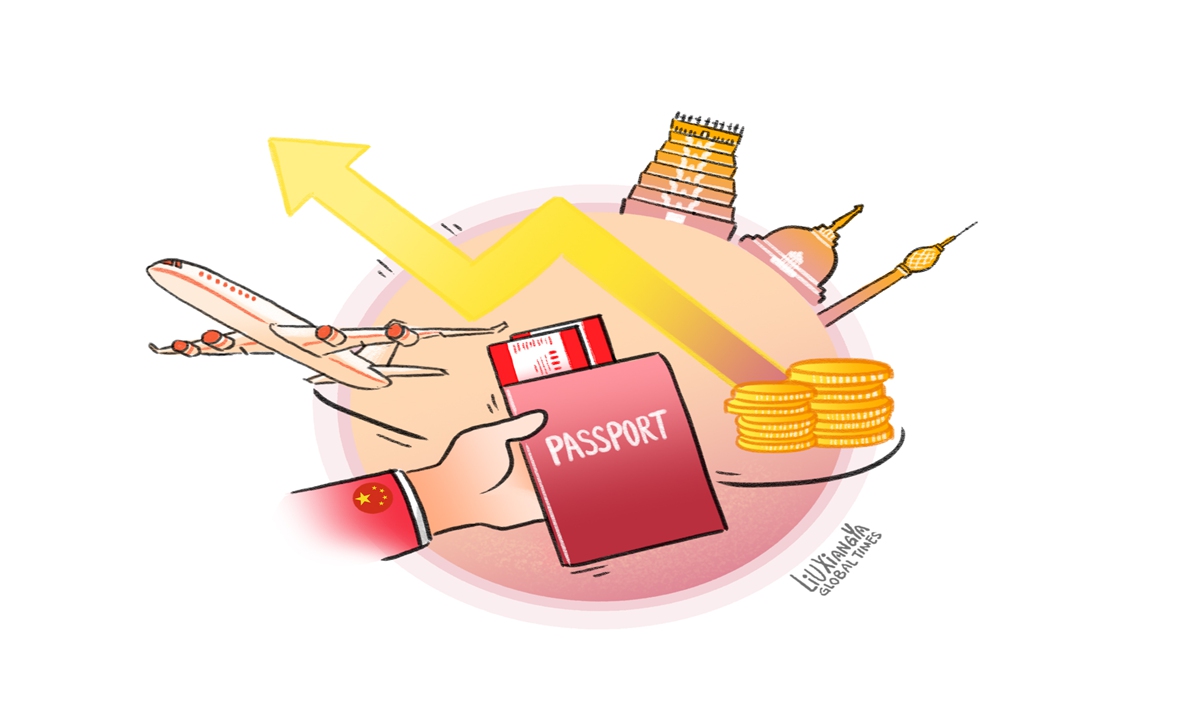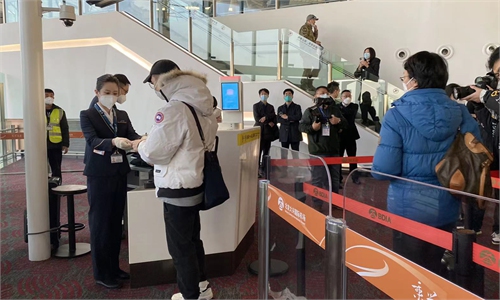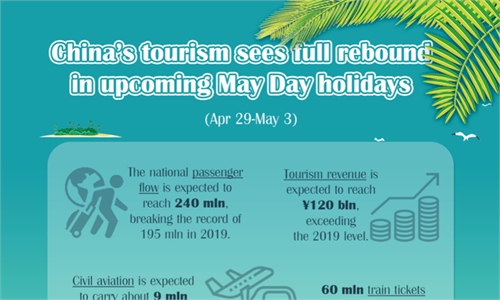
Illustration: Liu Xiangya/Global Times
With the May Day holiday approaching, the world, especially countries that are rich in tourism resources, has been eagerly awaiting the return of Chinese tourists. In April, the Sri Lanka Tourism Promotion Bureau began the first round of roadshows in major Chinese cities to introduce the country's tourism sector and lure Chinese visitors.
Sri Lanka is among the first group of destinations in China's pilot program for the resumption of outbound group tours after the country optimized epidemic control measures and policies. Sri Lanka plans to attract about 1.5 million visitors in 2023 and three million in 2024, a target which many feel isn't a particularly high number given the country's rich tourism resources combined with the robust recovery to outbound tourism.
Tourism has traditionally been the third largest foreign exchange earner in the country and an important income generator for Sri Lanka. The tourism industry, which was hit hard by the COVID-19 pandemic, now has a chance to become an engine for economic growth again, and the return of Chinese tourists will contribute to the process.
The Sri Lankan Ambassador to China Dr. Palitha Kohona said in February that the country is ready to provide better services for Chinese tourists and believes a recovery in tourism will help Sri Lanka emerge from the crisis at an early date.
Sri Lanka's crisis-hit economy shrank by 7.8 percent last year, as the country struggles with its worst financial crisis in decades. The country's foreign-exchange reserves have collapsed, which sparked a chain reaction as depleted foreign currency reserves crimped imports, creating severe shortages of food, fuel, electricity and other essentials such as medicines. The island country has resorted to buffering foreign exchange reserves via currency swaps, which is necessary, but what is more important is that the economy should improve its ability to "get its economic blood pumping " and expand its foreign exchange business to earn more money. That's why an anticipated Chinese tourism boom is of great significance to the Sri Lankan economy.
A continued recovery in travel to Asian countries comes at time when the region is facing renewed financial instability. Since 2022, the US Federal Reserve has embarked on an aggressive campaign to raise interest rates, leading to a strong US dollar that has become a hazard for global economy. Growing depreciation pressure on Asian currencies is clouding the outlook for regional economies as countries consume foreign exchange reserves to stabilize exchange rates. For economies with smaller economic size and single economic structure model, the risks accumulated in their financial system can hardly be disposed of in a short time. Now, Asia's economy needs to fully unleash its potential to escape the quagmire US' irresponsible monetary policy has created, and in this process, hopefully post-pandemic tourism recovery can serve as a major growth engine.
In the post-pandemic era, there is little doubt that Chinese tourists will remain a major driver of growth in the Asian tourism industry. To some extent, the upcoming May Day holiday could help offer a window to observe the trend of China's outbound tourism. With the holiday approaching, major online tourism companies, travel agencies and hotels have reported a surge in bookings, sending an encouraging signal that outbound trips are continuing to rise. According to Fliggy data, outbound travel bookings have hit a new peak, up more than 200 percent compared with the Spring Festival holidays this January.
While many have been focusing on the recovery of China's outbound tourism, less attention has been paid to its role in promoting Asian financial stability. It is sincerely hoped Asian countries, especially those smaller in size, won't miss out on the economic updraft created by the resurgence of tourists to the region. Meanwhile, tourism-related financial cooperation should be strengthened among Asian countries. For instance, if hotel prices were set in local Asian currencies or the yuan, we would not expect hotel prices to collectively change with a strong dollar.
The author is a reporter with the Global Times. bizopinion@globaltimes.com.cn



